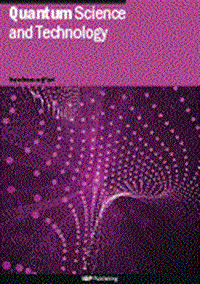Privacy-preserving quantum federated learning via gradient hiding
IF 5.6
2区 物理与天体物理
Q1 PHYSICS, MULTIDISCIPLINARY
引用次数: 0
Abstract
Distributed quantum computing, particularly distributed quantum machine learning, has gained substantial prominence for its capacity to harness the collective power of distributed quantum resources, transcending the limitations of individual quantum nodes. Meanwhile, the critical concern of privacy within distributed computing protocols remains a significant challenge, particularly in standard classical federated learning (FL) scenarios where data of participating clients is susceptible to leakage via gradient inversion attacks by the server. This paper presents innovative quantum protocols with quantum communication designed to address the FL problem, strengthen privacy measures, and optimize communication efficiency. In contrast to previous works that leverage expressive variational quantum circuits or differential privacy techniques, we consider gradient information concealment using quantum states and propose two distinct FL protocols, one based on private inner-product estimation and the other on incremental learning. These protocols offer substantial advancements in privacy preservation with low communication resources, forging a path toward efficient quantum communication-assisted FL protocols and contributing to the development of secure distributed quantum machine learning, thus addressing critical privacy concerns in the quantum computing era.通过梯度隐藏实现隐私保护的量子联合学习
分布式量子计算,尤其是分布式量子机器学习,因其能够利用分布式量子资源的集体力量、超越单个量子节点的限制而备受瞩目。与此同时,分布式计算协议中的隐私问题仍然是一个重大挑战,特别是在标准的经典联合学习(FL)场景中,参与客户的数据很容易通过服务器的梯度反转攻击而泄露。本文提出了具有量子通信功能的创新量子协议,旨在解决联合学习问题、加强隐私保护措施并优化通信效率。与以往利用表现力变异量子电路或差分隐私技术的工作不同,我们考虑了利用量子态隐藏梯度信息,并提出了两个不同的 FL 协议,一个基于私有内积估计,另一个基于增量学习。这些协议在利用低通信资源保护隐私方面取得了重大进展,开辟了一条通往高效量子通信辅助 FL 协议的道路,促进了安全分布式量子机器学习的发展,从而解决了量子计算时代的关键隐私问题。
本文章由计算机程序翻译,如有差异,请以英文原文为准。
求助全文
约1分钟内获得全文
求助全文
来源期刊

Quantum Science and Technology
Materials Science-Materials Science (miscellaneous)
CiteScore
11.20
自引率
3.00%
发文量
133
期刊介绍:
Driven by advances in technology and experimental capability, the last decade has seen the emergence of quantum technology: a new praxis for controlling the quantum world. It is now possible to engineer complex, multi-component systems that merge the once distinct fields of quantum optics and condensed matter physics.
Quantum Science and Technology is a new multidisciplinary, electronic-only journal, devoted to publishing research of the highest quality and impact covering theoretical and experimental advances in the fundamental science and application of all quantum-enabled technologies.
 求助内容:
求助内容: 应助结果提醒方式:
应助结果提醒方式:


